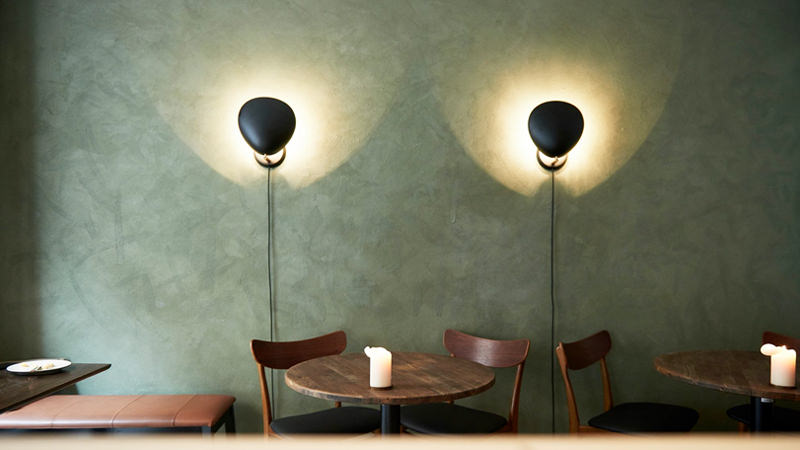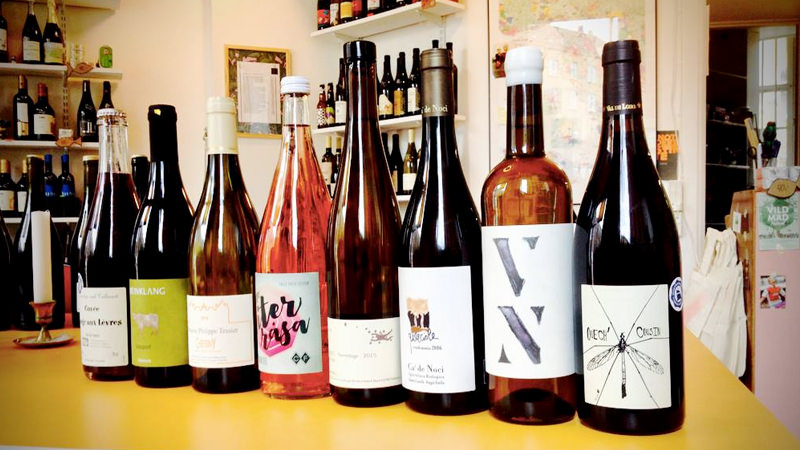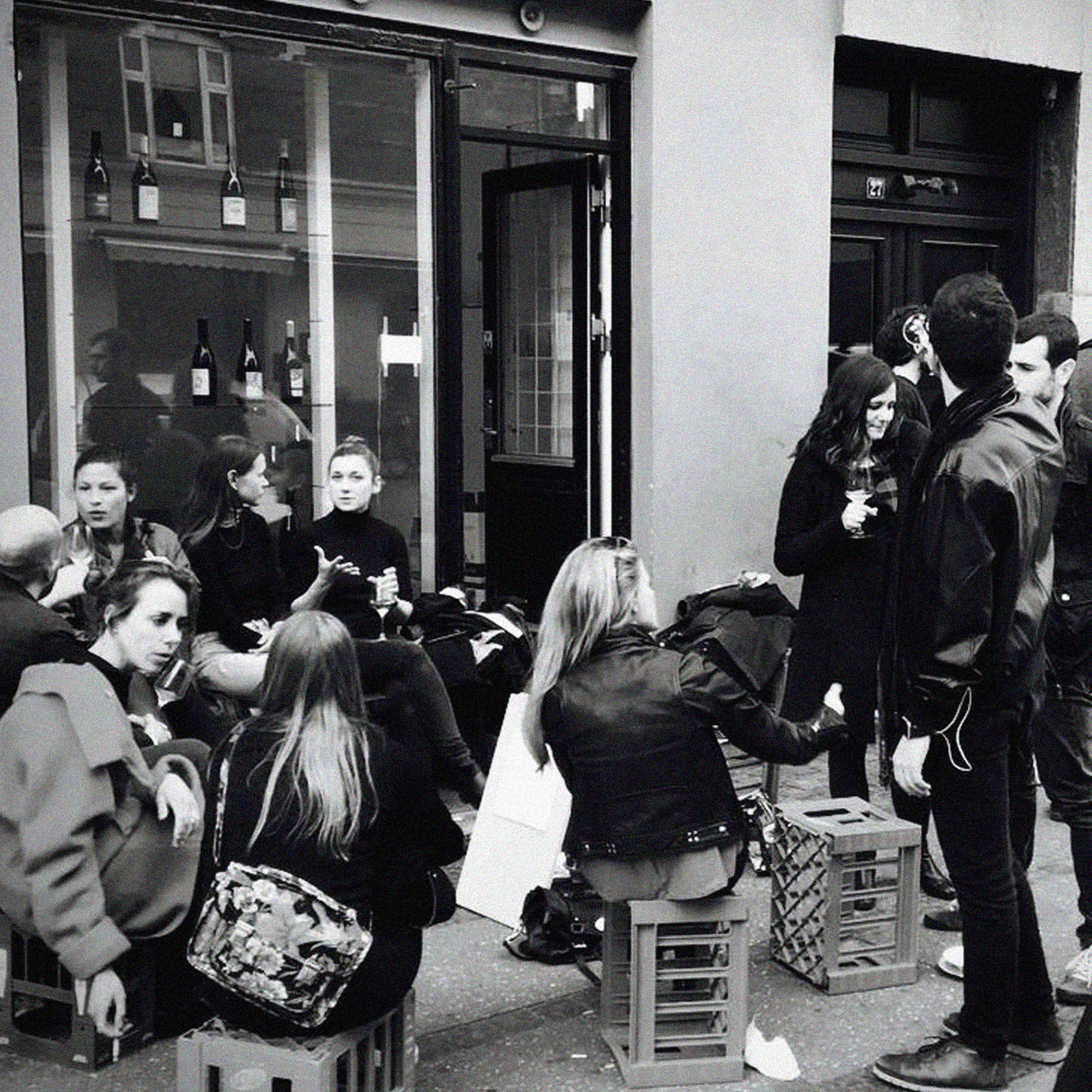
I had to double check the label when the waiter handed me the bottle I’d requested. On the front it read, “Testalonga El Bandito.” On the back was the evidence I was looking for: “Wine of South Africa. Place of Origin: Swartland.”
My jaw slowly slid toward the table. South African by birth, I live in America and travel quite a bit for work. Seeing a bottle of raw wine from the Swartland – an area consistently overshadowed by better-known and more tourist-friendly wine regions like Stellenbosch and Franschhoek – in Copenhagen’s Admiralgade 26 restaurant was shocking.
Perhaps it shouldn’t have been. Many of the winemakers in the Swartland are boutique-sized operations producing small batches of raw and biodynamic wines. In hindsight maybe it shouldn’t have surprised me that a bottle of Chenin Blanc, imported from a region that is predominantly producing natural wines, would make it to a city that focuses on all things natural and sustainable. It seems, natural.
Like most things in Copenhagen’s bar and restaurant scenes, many believe Noma is to thank for the sustainable wine movement.
“Natural wine in Copenhagen really started with the rise of Noma,” says Andreas Waechter, co-owner of the wine bar and restaurant Ancestrale. “In the 2000s, Noma started serving natural wines. As Noma was emerging as the ‘flagship’ restaurant in Copenhagen, naturally a few restaurants followed.”

But it wasn’t entirely Noma that fueled the rise of natural wine in Denmark’s capital city. “In the last few decades, Danes have become more interested in consuming organic and locally produced goods, so consuming wines that explicitly try to avoid chemicals makes sense,” Waechter continues. “The emergence of the new Nordic cuisine, which works with old-school methods of preservation, like pickling and fermentation, has helped propel natural wines that accentuate these tastes.”
Tucked down a small street on the edge of Copenhagen’s Frederiksberg district, Ancestrale is a tiny brick-clad wine bar that serves a range of natural wines and a curated rotating menu of small dishes. While Ancestrale has certainly been pioneering in Copenhagen’s natural wine movement, today you’ll find natural wines in almost every notable establishment in Copenhagen.
Restaurants and wine bars like Amass, Relæ, Manfreds, and Pasteur Vinbar have menus entirely or densely peppered with natural wines. Wine retailers like Volatil sell a large range of funky wines.
“There is a big sustainability discussion going on in Denmark and the organic movement is very big, But consumers also like it because there is the coolness factor,” says Tue Bach Petersen, owner of Volatil. “In our shop, 90 percent of our customers only want ‘funky,’ orange, or unsulphured wines. Copenhagen’s gastro scene is very curious, so people are eager to broaden their minds.”
Pioneering businesses like Rosforth & Rosforth, a Danish wholesaler and wine importer, kickstarted the importation of natural wines and further diversify restaurants’ and consumers’ choices. “It’s a case of the chicken or the egg; was it the importers or restaurants who started the trend?” Petersen says.
Rosforth & Rosforth started importing natural wines in the early 2000s, around the time Noma first opened its doors. “The impact of Noma is an important factor because it was the first restaurant to start using natural wines, which essentially influenced other restaurants,” says Pontus Elofsson, partner and manager of Rosforth & Rosforth and former Noma sommelier. Being the first to stock “funky” wine at a restaurant that served anything but the expected wasn’t exactly a hard sell to customers.
“When people came to Noma, their guards were down,” Elofsson says. “There were a few exceptions, but when most people came into the restaurant they expected something else. It was quite easy actually and it was good situation as a sommelier.”

Rosforth & Rosforth currently imports wine from all over the world: the Loire Valley, California, Catalonia. One might argue that the most sustainable thing to do would be not to import at all. But in a country like Denmark, which spends a large part of the year in cold weather conditions and darkness, producing consistently stellar grape wine isn’t much of an option. Being Danish – and naturally born big thinkers – many winemakers have turned to other fruit-based wines. Æblerov, run by Morten Syvest Noer and Christopher Melin, makes apple Champagne and cider that is served at Michelin-star restaurants like Relæ and Amass. Cold Hand Winery makes a range of fruit Champagnes using unusual ingredients like raspberries, cherries and gooseberries.
Copenhagen might be leading the way in natural wines, but, with the exception of Aarhus, on the country’s Jutland peninsula, the trend hasn’t yet filtered into other Danish cities. “Copenhagen is an exception from the rest,” Eloffson says. “When you are further away from the capital city, the interest for these kind of things seems to lessen, so the demand is not as high. At the moment, I think it’s still a niche thing – a subculture.”
The reality remains that the trend will never become mainstream “as long as society is built up on big-scale consumerism,” Eloffsson says. “It’s like punk rock; everybody knows what it is and has heard it, but there aren’t that many punk rock bands out there.” If that’s the case, I know what I have to do: order two glasses of the Testalonga El Bandito and ask them to play The Clash on repeat.
Lead photo credit: facebook.com/volatilbar
